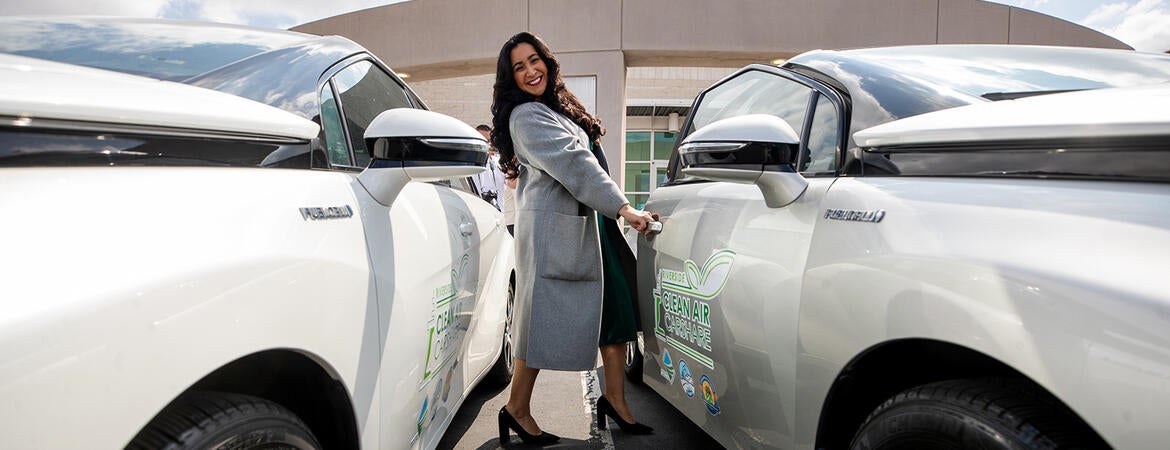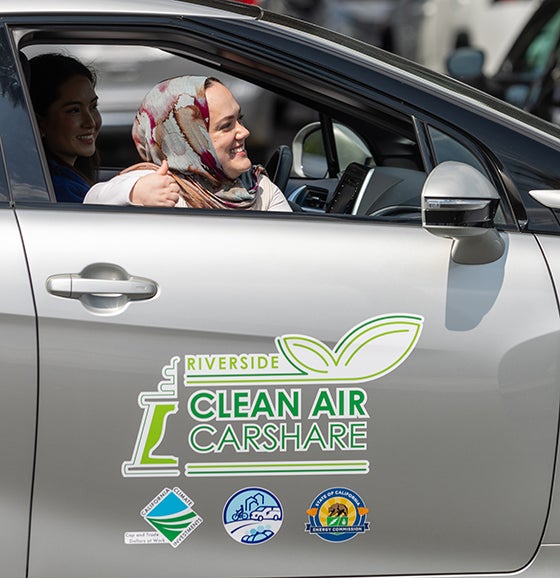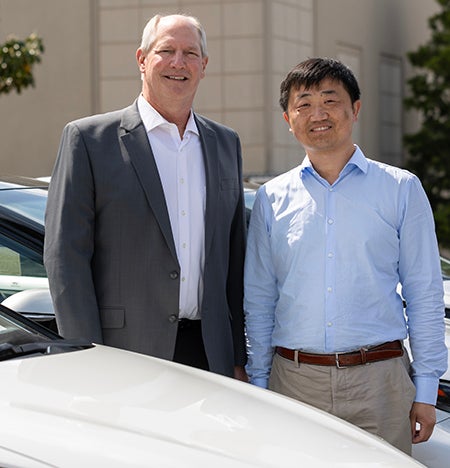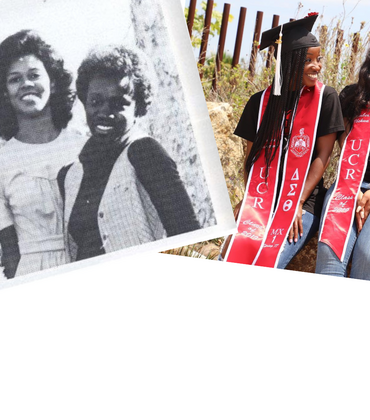
UC Riverside, in partnership with city and state agencies, has helped launch the nation's only hydrogen-powered carshare program—offering a clean, affordable transportation alternative to Riverside residents.
The Riverside Clean Air Carshare, or RCAC , program offers 13 Toyota Mirai sedans equipped with hydrogen fuel cell technology. Participants can reserve a car through a smartphone app, pick it up from one of several designated locations, and pay to drive it by the hour. Rental rates are designed to be lower than Uber or Lyft ride fees.
Funded by a $1.5 million grant from the California Air Resources Board, the project aims to expand access to shared transportation services while advancing zero-emission vehicle technology.
Hydrogen fuel cell vehicles generate electricity through a chemical reaction between hydrogen gas and oxygen from the air. Unlike gasoline engines, there is no combustion and only water vapor is produced.
One of the main hurdles to broader hydrogen vehicle adoption has been the lack of accessible fueling stations. This carshare program addresses that challenge by ensuring cars offered are fueled with compressed hydrogen gas before users pick them up, eliminating concerns about refueling.
Matthew Barth, associate dean for research and graduate education at UCR’s Bourns College of Engineering, said the program achieves “a double emissions benefit.”
“Carsharing systems inherently reduce vehicle miles traveled by getting people out of their personal cars to use a fleet of shared vehicles, and, in addition, they are driving zero-emission vehicles,” he said.
Barth said the program is designed to be convenient. Users don’t have to worry about fueling, insurance, car payments, or maintenance.
The vehicles are managed and fueled by Mobility Development Operations, or MDO, a company that oversees carshare services in 14 states.
Cars can now be picked up from two locations:
● UC Riverside’s Center for Environmental Research and Technology (CE-CERT) at 1084 Columbia Ave.
● The S. Sgt. Salvador J. Lara Casa Blanca Library at 2985 Madison St. in the Casa Blanca neighborhood.
Another pickup site will soon be available on UCR’s main campus in Parking Lot 1 near Hinderaker Hall. Four additional pickup locations are planned in the Eastside, Downtown, Arlanza, and La Sierra neighborhoods.
The carshare program also serves as a research platform. CE-CERT researchers are collecting anonymized trip data to analyze the program’s mobility, environmental, and economic impacts. The data—covering fuel use, trip purpose, mileage, and demographics—will also provide UCR engineering students with valuable training experiences.
“We’re treating this as a living laboratory,” said Peng Hao, a CE-CERT associate researcher and adjunct professor. “We use the anonymized data from the app to measure reductions in vehicle miles traveled, fuel use, and greenhouse gas emissions.”
To participate, users must download the MDO Carshare app, upload a valid driver’s license and payment method, take an online orientation, and schedule a vehicle. The app also allows users to lock and unlock the vehicle. Each car must be returned to its original pickup location. Costs include a one-time $20 application fee, which covers a driving record check. After that, vehicles rent for $9 per hour, or $6 per hour for low-income users who qualify for programs like SNAP, WIC, or Medicaid. After the first 100 miles, there’s an additional fee of 45 cents per mile.
More details and sign-up information are available at https://mdocarshare.org/riverside.
“Right now, we’re using hydrogen fuel cell vehicles,” Barth said. “But as this system grows, we could integrate battery electric vehicles or other clean technologies. The bigger idea is reducing vehicle miles traveled and promoting clean mobility, regardless of the powertrain





